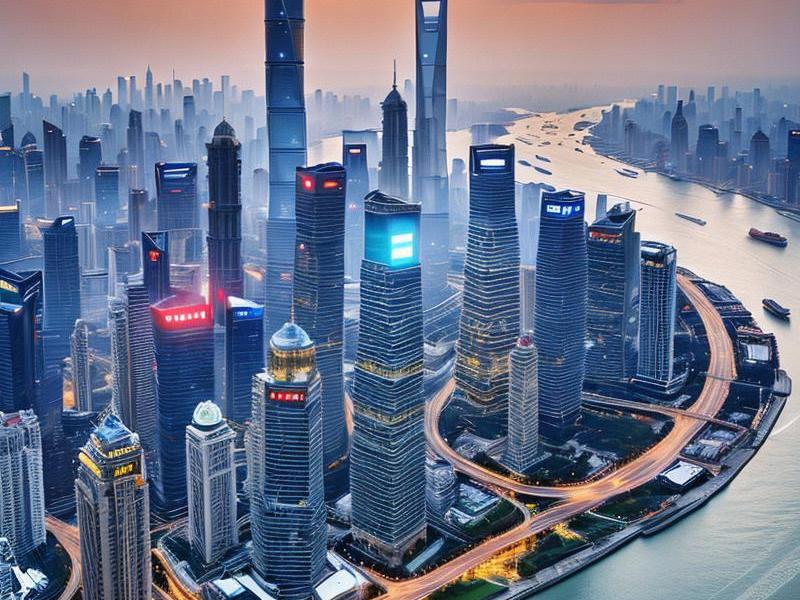This article delves into the multifaceted aspects of Shanghai, exploring its transformation from a historic port city to a global economic powerhouse. It examines the city's rapid urban development, its role as a financial hub, the blending of cultures, and its increasing global influence.

Shanghai, a city that has long been a symbol of China's modernization, stands today as a beacon of progress and innovation. Nestled along the banks of the Huangpu River, this vibrant metropolis is not only the largest city in China but also a pivotal player on the global stage. Its story is one of relentless growth, cultural fusion, and strategic vision, making it a fascinating subject for exploration.
The journey of Shanghai began centuries ago when it was merely a small fishing village. However, the 19th-century Opium Wars marked a turning point, as the city was forcibly opened to foreign trade. This period saw the establishment of the International Settlement and the French Concession, leading to a unique blend of Eastern and Western cultures. The Bund, with its colonial-era architecture, stands as a testament to this historical chapter.
In the latter half of the 20th century, Shanghai experienced a remarkable transformation. Following the founding of the People's Republic of China in 1949, the city underwent significant changes under the leadership of the Communist Party. The economic reforms initiated in the late 1970s, particularly the opening up policy by Deng Xiaoping, catapulted Shanghai into a new era of prosperity. The Pudong area, once a rural expanse, was developed into a modern financial district, housing the iconic Oriental Pearl Tower and the Jin Mao Tower, among other skyscrapers.
Today, Shanghai is recognized as one of the world's leading financial centers. The Shanghai Stock Exchange is a major player in global finance, and the city is home to numerous multinational corporations and international organizations. Its port, the busiest container port in the world, underscores its importance in global trade. The city's economy is diverse, encompassing finance, technology, manufacturing, and services, making it a resilient and dynamic economic hub.
新上海龙凤419会所
Culturally, Shanghai is a melting pot of traditions and modernity. The city boasts a rich heritage, with landmarks such as Yu Garden and the Yuyuan Bazaar offering a glimpse into its historical past. At the same time, it is a hub for contemporary art, fashion, and cuisine. The Shanghai Museum houses an impressive collection of Chinese art, while the city's numerous art galleries and theaters showcase the works of both local and international artists. The annual Shanghai International Film Festival is a prestigious event that attracts filmmakers and cinephiles from around the globe.
The blending of cultures is evident in the city's neighborhoods, where one can find everything from traditional Shikumen houses to futuristic skyscrapers. The French Concession, with its tree-lined streets and charming cafes, offers a European ambiance, while areas like Nanjing Road and Huaihai Road are bustling commercial districts that cater to the tastes of a cosmopolitan population. The city's culinary scene is equally diverse, with Shanghainese cuisine being just one of the many flavors that delight the palate.
Shanghai's global influence extends beyond its economic and cultural achievements. The city has been a key player in China's Belt and Road Initiative, fostering international cooperation and connectivity. Its role in promoting sustainable development and green initiatives is also noteworthy. The Expo 2010, which Shanghai hosted, was a showcase of the city's ability to organize large-scale international events and its commitment to innovation and sustainability.
上海水磨外卖工作室
The city's urban planning and infrastructure are models of efficiency and foresight. The Maglev train, connecting Shanghai to Pudong International Airport, is a marvel of modern transportation technology. The city's extensive metro system provides便捷便捷(方便的)(convenient) (convenient) and efficient public transport, reducing traffic congestion and promoting environmental sustainability. Green spaces and parks, such as Century Park and Zhongshan Park, offer residents and visitors a chance to relax and connect with nature amidst the urban sprawl.
Education and research are also priorities for Shanghai, with institutions like Fudan University and Tongji University attracting students and scholars from around the world. The city's commitment to innovation is reflected in its numerous high-tech zones and incubators, which foster entrepreneurship and technological advancement.
However, Shanghai's rapid development is not without challenges. The city faces issues related to urbanization, such as housing shortages and environmental concerns. The government has implemented various measures to address these challenges, including the promotion of affordable housing and the enhancement of environmental regulations.
爱上海
Looking ahead, Shanghai's future is poised to be even more promising. The city is expected to continue its role as a driver of China's economic growth and a key player in global affairs. The ongoing development of the Shanghai Free-Trade Zone and the expansion of the China (Shanghai) Pilot Free-Trade Zone are expected to further enhance the city's competitiveness and attractiveness to foreign investment.
The integration of artificial intelligence, big data, and other emerging technologies is also set to transform various sectors in Shanghai, from healthcare to education. The city's vision for the future includes becoming a global center for innovation and a model for sustainable urban development.
In conclusion, Shanghai's story is one of resilience, adaptability, and ambition. From its historical roots to its modern-day achievements, the city exemplifies the spirit of China's reform and opening up. As it continues to evolve, Shanghai remains a vital part of China's narrative and a significant force in the global landscape. The city's journey is a testament to the potential of human ingenuity and the power of urbanization to shape the future.